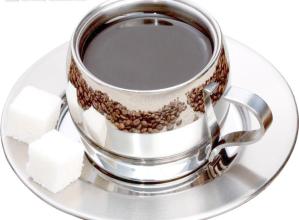A brief introduction to the flavor, taste and aroma characteristics of Katim boutique coffee beans suitable for deep baking

Coffee is a semi-shaded tree species, it is recommended to establish a moderate shade degree of 30%. In the site environment of growing coffee in our province, it is generally difficult to solve the problem of water conservancy and irrigation. the water season is in the dry season, and it is also the season to compete with other crops for water. It is not easy to rely on irrigation to meet the water demand in the coffee field. It is necessary to loosen the soil in time after the end of the rainy season and use ground dead cover and plastic film mulching (infancy).
Pruning and shaping
The use of single or double rod non-shaping, cut off excess erect branches, retain a strong branch and an appropriate amount of second or third branches, remove weak and disorderly branches, and keep the tree ventilated and transparent.
8. Pest control
Mainly pest control, the first three years after planting is mainly to control coffee longicorn beetles and bark moth, using long-acting insecticides to dry, spray-dry control, from May to July every year. The adult coffee garden is mainly used to control the coffee longicorn beetles, which is controlled by drug spray drying (April-September). Properly through shade, fertilization to enhance the tree potential. After fruit harvest, the branches were repaired and destroyed, the wild hosts around the coffee garden were removed, and the damage of coffee root pink scale and green scale insects were monitored.
Weeding and loosening the soil
Keep the planting coffee belt clean, weed must be removed, and loosen the soil of the whole garden at the end of the rainy season.
Timely harvest
To achieve timely harvest of red ripe fruit.
Wet processing
Suitable site selection, deep trough and fertilizer, strong seedling planting, reasonable close planting, appropriate shading, nutrition diagnosis, formula fertilization, water conservancy irrigation, pruning and shaping, weeding and loosening soil, dead cover, pest control, fruit harvest.
There is a third reason why we have to put in a good word for Nestl é. At that time, leaf rust spread all over the world, and international organizations promoted the cultivation of Katim.
To put it another way, Colombia is the biggest harvest of the new variety of Katim, and the improved Katim with the national name "Colombia" Katim and Kaddura are their two main varieties, with a proportion of about 6:4. These were told by my Colombian colleagues during the 2010 World Expo as a Chinese coffee consultant in Costa Rica. So those friends who flip through the coffee beans printed in Supermo bags and say how Katim in Yunnan had no flavor last time, please pay more attention to the coffee in Yunnan.
Katim, as a variety that has taken root in Yunnan, I love and hate it. Although it has many shortcomings and is not suitable for planting at high altitude at all, there is still a lot of room for improvement and it has become better and better. How to find more of its advantages and make use of it is the most important. In the popular shallow baking pursuit of sour aroma to enhance the sweet taste of the domestic circle, it appears to be insufficient thickness. But few people realize that because of Katim's Romsta pedigree, it is suitable for deep and fast baking. Therefore, please treat and promote Yunnan coffee correctly.
Catimor: in 1959, the Portuguese mixed Brazilian Kaddura and Timo to develop a disease-resistant Katim / Katimo, which is now an important variety of commercial beans.
Growing period
Yunnan small grain coffee 3-year-old 4-year-old fruit tree.
Coffee is a short-day plant. Coffee has the characteristics of multiple flowering and concentrated florescence. The florescence of small seed coffee in Yunnan is from February to July, and the flowering period is from March to May. The flowering of coffee is greatly affected by climate, especially rainfall and temperature. Coffee flowers have a short life span of only 2-3 days. Small seed coffee usually opens at 3: 5 in the morning and blooms from 5 to 7 o'clock.
The development time of coffee fruit is longer. It takes 8 to 10 months for the fruit of small seed coffee to mature, usually from October to December of the year. Rainfall has a great influence on fruit development, and climatic conditions directly affect fruit development.
(Tibica tree)
The new leaves at the tips of the branches and leaves above are copper, which is Tiebika growing coffee trees. Tibica is an old variety of Arabica species. It is also known as Kona Hawaii and the Blue Mountains of Jamaica. In the vast expanse of Katim, it is easy to recognize. After careful observation, you will find that each species has its own appearance, Katim's leaves are hanging down, the tree shape seems to be wearing a cloak. Tiebika, on the other hand, has upward branches and new leaves on the top of the tree.
(Katim tree on the right)
Along the way, most of the varieties planted in Yunnan are Katim, which is a hybrid of Kaddura and Robusta, a branch of the bourbon line in the Arabica species. The reason for planting this variety is that Katim has the Robusta gene, so it is better than a single old variety in disease resistance, and the yield is better, and the yield is lower than that of the delicate old variety. Farmers naturally prefer to grow Katim, so now there has been a wave of Katim in Yunnan.
The field management measures are suitable for the management of general small-grain coffee. Propagation method: adopt seed propagation, select 5-year-old fine mother tree, harvest fully mature, fruit shape is normal, full, size is basically the same, with two-seed fruit as seed, using sand bed to promote germination, plastic bag seedling.
Selection of suitable forest land
The annual mean temperature is 19-21 ℃ years, the accumulated temperature of annual ≥ 10 ℃ is more than 6800 ℃, the coldest monthly mean temperature is more than 11.5 ℃, the absolute lowest temperature is above 1 ℃, the coldest monthly mean temperature is ≥ 11.5 ℃, the monthly mean temperature of ≤ 13 ℃ is more than two months, the extremely lowest general year is more than 0 ℃, and some years appear areas of-1 ℃ or short-2 ℃. The annual rainfall is ≥ 1100mm below 1200m above sea level, and the soil should be fertile loam, loose soil, good drainage, PH value 66.5and slope less than 25 °, so as to avoid planting in the depression where cold air is easy to deposit.
Forest land reclamation
Coffee is a long-term economic crop, woodland reclamation must be long-term planning, good planning, before reclamation must do a good job of road, shed, fertilizer pool design. When reclaiming woodland, shade trees should be selected to make the coffee woodland after planting have 30% shade, and then adjust to 20%. In planning and design, we must do a good job in the planning and reclamation of horizontal terraces and terraces, which is not only the primary task of soil and water conservation, but also an important work to bring convenience to field management after planting. Trenching, with the specification of upper mouth width × depth × bottom width 60 × 50 × 40cm, will be reclaimed before the end of November to the end of March of the following year.
Apply sufficient base fertilizer
3000-4000kg high quality organic fertilizer per mu, phosphate fertilizer 80-120kg returned to the hole 15 days before planting (organic fertilizer, phosphate fertilizer and soil were mixed well and applied into the planting ditch).
Strong seedling planting
Select seedlings with robust growth, close to branches or 3 pairs of branches, stout main stem, stem diameter above 0.4cm, and no curved root. The irrigated land can be planted in advance (February-March), and the planting row spacing depends on the topographic environment, usually planting 330mi 420 plants per mu.
Water and fertilizer management
Topdressing management: the average amount of fertilizer applied to young plants was 3-5kg of organic fertilizer, 50g of calcium magnesium phosphorus, 100g of urea and 50g of compound fertilizer. The average amount of fertilizer applied to adult plants was 7-10kg of organic fertilizer, 100g of urea, 150g of compound fertilizer, 50g of calcium magnesium phosphorus and 150g of potassium sulfate. Combined with growing period, flowering period, strong fruit, overwintering fertilizer 3Mel was applied for 5 times. If deficiency of trace elements occurs, attention should be paid to the application of compensation.
Water conservancy irrigation: coffee is a shallow root crop, and its flowering season is in the dry season in our province. Soil moisture and atmospheric humidity in the field seriously affect the quality of flowering, the development of floral organs and the formation of young fruits. Sufficient water, consistent flowering, high fruit setting rate, good fruit growth and development, otherwise poor, or even cause withered branches, the planted young trees will die because of drought. It is suggested that all new development areas should choose places with more convenient water sources and try their best to create conditions to solve the facilities of furrow irrigation and drip irrigation.
Shaded trees and ground cover
Important Notice :
前街咖啡 FrontStreet Coffee has moved to new addredd:
FrontStreet Coffee Address: 315,Donghua East Road,GuangZhou
Tel:020 38364473
- Prev

A brief introduction to the treatment method of grinding degree and baking degree of Colombian Huilan boutique coffee beans with fruit flavor
Colombian, Colombia: Huilan Variety: Caturra treatment: water washing flavor: full of acid, caramel, sweet nuts, chocolate, red wine flavor, admirable fruit flavor. Palate: full viscosity, caramel sweetness, supple and pleasant fruit acid. Baking degree: medium and deep baked Columbia Huilan (Colombia huila): located in Colombia
- Next

A brief introduction to the Origin, Development, History and Culture of Katim Fine Coffee beans with a long aftertaste
The output of Tiebika in Yunnan coffee is the lowest and the most expensive, and it also belongs to the best of Arabica species in the world, of which the Blue Mountains of Jamaica and Kona of Hawaii can be said to be Tibica. Due to changes in origin and some cultivation, Yunnan Tiebika is softer and sour is not as sour as Blue Mountain. But generally speaking, Tibica tastes light (it should be very light).
Related
- Detailed explanation of Jadeite planting Land in Panamanian Jadeite Manor introduction to the grading system of Jadeite competitive bidding, Red bid, Green bid and Rose Summer
- Story of Coffee planting in Brenka region of Costa Rica Stonehenge Manor anaerobic heavy honey treatment of flavor mouth
- What's on the barrel of Blue Mountain Coffee beans?
- Can American coffee also pull flowers? How to use hot American style to pull out a good-looking pattern?
- Can you make a cold extract with coffee beans? What is the right proportion for cold-extracted coffee formula?
- Indonesian PWN Gold Mandrine Coffee Origin Features Flavor How to Chong? Mandolin coffee is American.
- A brief introduction to the flavor characteristics of Brazilian yellow bourbon coffee beans
- What is the effect of different water quality on the flavor of cold-extracted coffee? What kind of water is best for brewing coffee?
- Why do you think of Rose Summer whenever you mention Panamanian coffee?
- Introduction to the characteristics of authentic blue mountain coffee bean producing areas? What is the CIB Coffee Authority in Jamaica?

